So. Sleep. We all do it.
We have to. For at least 8-10 hours every night, we sleep. It's a universal hobby, a required tradition, if you will. But what happens if that tradition goes astray? When that hobby becomes harder to maintain-? (Are these analogies getting confusing yet?)
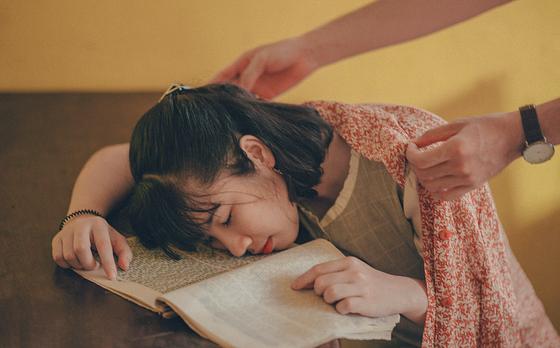
Image Credit: Min An from Pexels
Basically, what do you do when you have to turn in that one English essay you completely forgot about and remembered to write at 9 pm, forcing you to chug black tea to stay awake at 3 am, writing till your eyes water, only realizing you have to be up at 6 am for a dentist appointment. Oh, and you still have to shower.
Just me?
We live in a world that consistently demands our full attention, whether at school, with our friends, talking to parents, or even scrolling on our phones. But that attention is hard to give to anything at all when you aren't rested.
So, what to do to get your sleep schedule back on track? Well, here are ten tips that are sure to help your brain get the rest it deserves.
Let us slide into your dms 🥰
Get notified of top trending articles like this one every week! (we won't spam you)1. Put that Phone Down!
Not literally right now, of course. You have to finish this article, silly! But in all seriousness, putting down your phone for at least 30 minutes to an hour or two before you go to bed can significantly improve the quality of your sleep, as the light that phones naturally produce from the screen, also known as blue light, can negatively affect your brain chemistry and your sleep cycle.
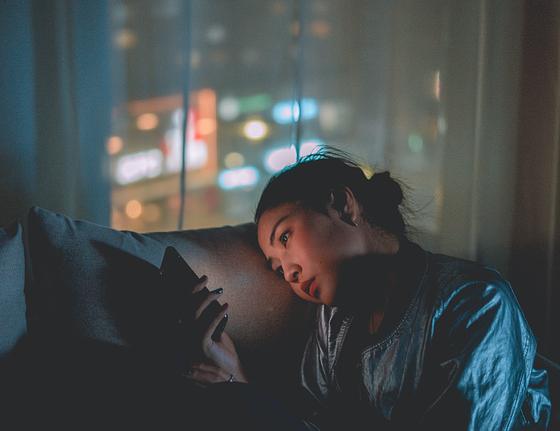
Image Credit: mikoto.raw Photographer from Pexels
At night, light throws the body's biological clock—the circadian rhythm—out of whack. Sleep suffers. Worse, research shows that it may contribute to the causation of cancer, diabetes, heart disease, and obesity.
-Harvard Health Publishing, 'Blue light has a dark side'
But if you can't help but use your phone right before bed, such as calling a friend or watching a calming video, fear not! You can use blue light glasses. They are non-prescription glasses that can be used to block a decent amount of blue light waves from your pesky little devices.

Take the Quiz: What is your IQ level?
Find out how smart you are by taking this quiz!
2. Go For a Stroll
Believe it or not, medical studies show that regular physical activity can help you sleep better, even if it's just a quick 30-minute walk. It can help wear out your body and release any pent-up energy. It also helps lower anxiety levels and calm your mind.
However, it's best not to do any high-intensity workouts 1-2 hours before bed, as it can have a more negative effect than a positive effect on sleep. Instead, try to do some yoga, biking, swimming, or walking regularly, preferably during the day or afternoon.
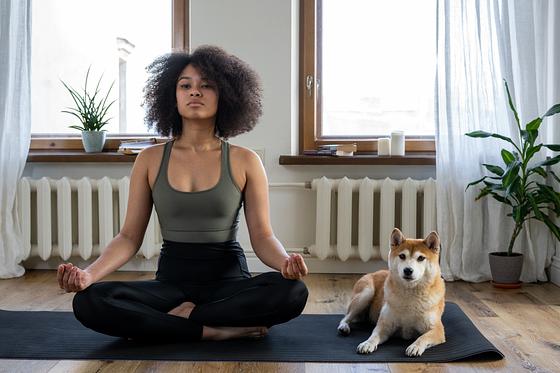
Image Credit: cottonbro studio from Pexels
In general, if you’re going to exercise at night, it’s best to do light to moderate-intensity activity. This level of activity may help you fall asleep faster and get better quality sleep.
-Healthline, 'Can Exercising Before Bed Affect Your Sleep?'
3. Magic Melatonin
When I tell you that melatonin is a literal sleep juice, I mean that. I recently started taking melatonin myself, as I've always struggled with calming my mind down enough to get to a relaxed sleep state, and melatonin has helped me tremendously to enter a properly deep sleep.
Melatonin is a hormone that your brain produces in response to darkness. It helps with the timing of your circadian rhythms (24-hour internal clock) and with sleep.
-NCCIH, 'Melatonin: What You Need To Know'
I will say, I had the strangest dreams while taking the stuff. I can't complain though. Waking up thinking I was in a ball pit with Spider-Man wasn't exactly horrible, just bizarre.
However, although melatonin is beneficial and effective, it can have adverse side effects for some, such as grogginess during the day. Try it for a few nights to see how it treats you before using it regularly.
They come in gummies, drops, and pills, so if you like to have an excuse to eat candy at night (before you brush your teeth, of course. I know I sound like everyone's mom here, but you know I'm right), there is a form of melatonin for that too!
4. Take a Warm Bath
Did you know that taking a warm bath or even a shower can help relax you tremendously before going to sleep?
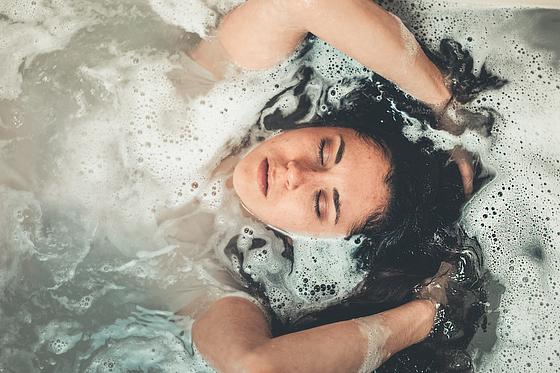
Image Credit: Craig Adderley from Pexels
And if you'd like it to be even more effective and relaxing, you can add some scented Epsom salt to a bath, or use some Melatonin body wash in a shower. It can also give you more time to sleep in the next morning, since you won't have to wake up early to shower!
5. No Midnight Munchies
I know, I know, midnight ice cream is the best-tasting thing ever, and dare I say it tastes better than ice cream during the day. But eating at night when you're trying to sleep is very detrimental to your sleep cycle, as it can give you energy you don't have the time to burn when you're trying to sleep.
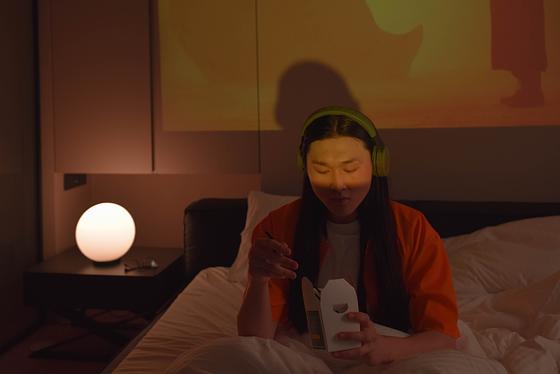
Image Credit: cottonbro studio from Pexels
Now we're all gonna have those moments where we remember we have a leftover slice of cake that was not good enough to eat earlier that day but tastes like heaven at 1 a.m., and that's fine, but it's best not to consistently eat late. It also helps not to eat super sugary foods before bed, (R.I.P. to the ice cream) and it's best to stick to your fruits, veggies, and carbs before bed.
It’s best to stop eating about three hours before going to bed. That allows plenty of time for your body to digest the last food you ate so it won’t disrupt your sleep, but leaves a small enough window before sleep that you won’t go to bed feeling hungry.
-Cleveland Clinic, 'Is Eating Before Bed Bad for You?'
6. A Bedtime Story
We found that reading in bed before sleep not only potentially improves overall sleep quality, but also people in the reading group experienced fewer problems staying asleep.
-National Library of Medicine, 'Does reading a book in bed make a difference to sleep in comparison to not reading a book in bed?'
Now, if you're like me and cannot put a book down as soon as you pick it up, no matter how late it is, even if it is a book about a man who is convinced he is a tiger and other bizarre and rare mental conditions unique people can have, (true story, the book is called 'Unthinkable', I highly recommend it), I do not recommend this method.
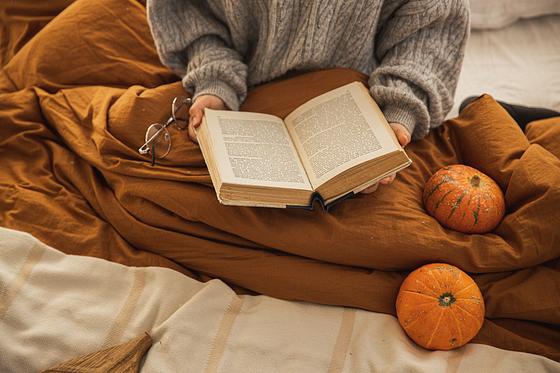
Image Credit: Monstera Production from Pexels
However, if you are one of those people who finds reading tiring and relaxing, reading a short story or a calming and happy book can help allow your brain space to calm and center your thoughts. It can help to distract yourself from any current worries or anxieties that may be keeping you awake.
7. Keep It Bright
Ironic, right? In order to get better sleep at night, you need to have more light in your life during the day!
Getting exposure to sunlight in the morning can help you sleep at night because it helps reset your body's inner "sleep clock." Light is an important cue for your body’s sleep cycle.
-Verywell Health, 'How Getting Sunlight in the Morning Can Help You Sleep Better'
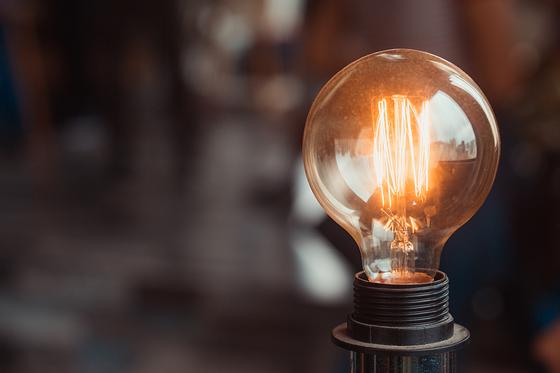
Image Credit: Wilson Vitorino from Pexels
It actually makes a lot of sense when you think of it, as light during the day helps make you more alert, thus expending energy during the day. This helps tire you out to sleep that night. The light also signals your brain that this is waking time and the dark signals that it is time to rest. And if you are in the dark all day, your brain will get confused and mix the signals, causing more brain activity during your sleep.
8. No Nightly Caffeine
You heard me, put down the Starbucks you silly goose! It should be no surprise to say that you should not drink a ton of caffeine during the day, as it can cause dehydration, anxiety, insomnia, and nausea, among other things as well, especially when you're trying to sleep.

Image Credit: Olena Bohovyk from Pexels
The generally recommended cut-off time for caffeine use is a minimum of eight hours before bedtime. For example, if you typically go to bed at 10 p.m., avoiding caffeine after 2 p.m. may help minimize sleep problems.
-Sleep Foundation, 'Caffeine and Sleep'
The reason it's best to give yourself at least 8 hours of caffeine-free time before bed, is because the caffeine stays in your bodily system for up to 10 hours in some cases, heightening your brain activity and making you feel artificially awake and alert.
Caffeine also comes in many forms, not just coffee. It can also be in tea, chocolate, some menstrual pills, allergy medicine, and, of course, coffee. A good substitute for coffee during the evening is a warm cup of herbal or mushroom tea. It can help relax you for bedtime, but still fill the warm drink craving.
9. Sleepy Senses
Have you ever woken up to a certain scent, sound, or sensation that instantly made you know it was morning, without ever even having to check your phone or clock for the time? You just know. Whether it's the smell of freshly brewed coffee.
Or the sound of the rest of your household waking up? Maybe you feel the sunlight on your face seeping through the curtains.
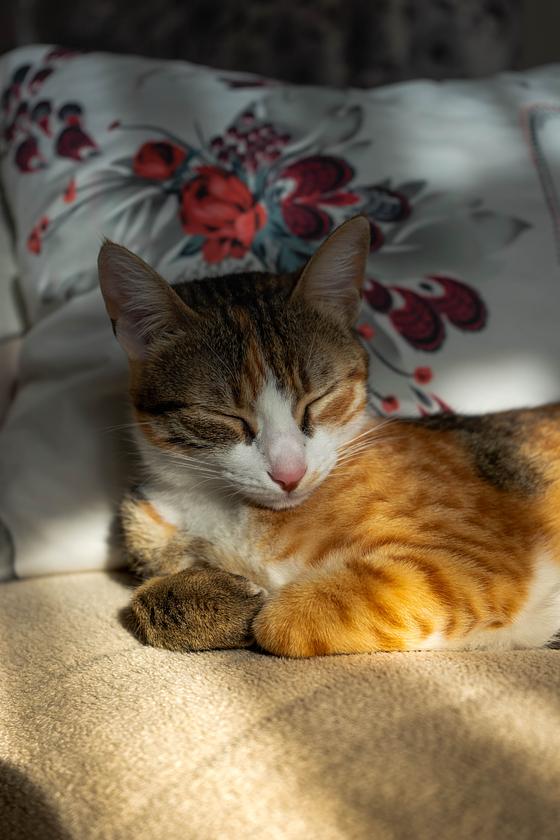
Image Credit: Halil İbrahim ÇETİN from Pexels
Whatever it is, we mammals (yes I said mammals. You know when you open up an animal's food around a certain time and the animal will associate that time of the day with food after that? We do that too.) often associate certain activities and habits with the appropriate scenes.
So, just like you can have many senses associated with the morning, there are a ton you can associate with nighttime.
Such as playing relaxing or rainy music, lighting a relaxing candle (don't forget to blow it out before bed), putting on a melatonin-scented body oil, or massaging your hands and feet before bed to flip your brain's sleep switch on. This can help your brain enter a state of rest so that sleep is a little bit easier to achieve.
Lavender has been associated with improved sleep in multiple research studies, including in some people with insomnia.
-Sleep Foundation, 'How Scents Affects Your Sleep'
10. Count Sheep
Okay, maybe not literally, but hear me out. The entire reason 'Counting sheep' works to relax someone is because the method of clearing your mind and just focusing on one thing, in this case counting sheep, and honing in on that one, rather dull, activity. If you think about it, that's exactly why mediation works wonders for assisting people with sleep issues.
Evidence suggests that mindfulness meditation may improve sleep quality on a level similar to exercise or cognitive behavioral therapy.
- Sleep Foundation, Meditation for Sleep
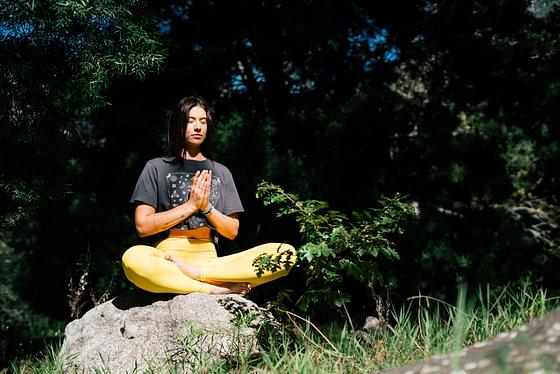
Image Credit: RF._.studio from Pexels
Now, you might be asking, what the heck is meditation?! Well, meditation is the process of clearing one's mind from all distractions and simply focusing on one action or thought, such as humming, saying a single word repeatedly, or counting your deep breaths.
Meditation is a very useful method to calm anxiety and makes achieving sleep much, much, easier. You can pretty much meditate anywhere, anytime, and can be hard to grasp at first, but after a little bit of practice, you can be a champ in no time.
There are also plenty of apps and online resources that can assist in achieving a calm mental state and successfully meditating.
Sleep Tight Bug Mite!
Now, if you are still having trouble sleeping after trying all of those, then I'm sorry, but you might want to look into a sleep potion on Etsy. Kidding, kidding. In all seriousness, however, if you are having extreme trouble sleeping, even after a decent period of trying common and helpful tricks to improve your sleep, then you should seek medical advice, as it could be a sign of an underlying issue.
.jpg)
Image Credit: Ivan Oboleninov from Pexels
Sleep deprivation can also cause illnesses on its own if not addressed.
Sleep deficiency is linked to many chronic health problems, including heart disease, kidney disease, high blood pressure, diabetes, stroke, obesity, and depression.
- National Heart, Lung, and Blood Institute, 'What Are Sleep Deprivation and Deficiency?'
Sleep is amazing when you really think about it. It gives you time to rest your brain and body, while also recharging both body and mind for the next day. Everyone needs sleep, to live, to function, to thrive, especially if you're a teenager, sleep is more than essential.
The American Academy of Sleep Medicine has recommended that children aged 6–12 years should regularly sleep 9–12 hours per 24 hours and teenagers aged 13–18 years should sleep 8–10 hours per 24 hours.
- The CDC, 'Sleep in Middle and High School Students'
If you want the absolute best chances for a good night's rest, try to do more than one thing that will positively affect your sleep. For example, if you try not using your phone for a certain amount of time at night before bed, also pair it with some nice sleep-scented candles or a comforting book. Just to give yourself the best chances at success, both at night and in the morning.
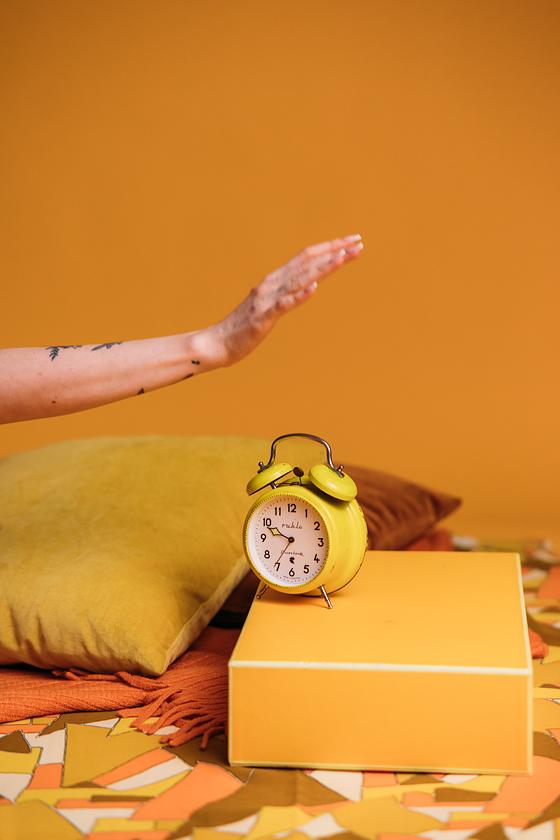
Image Credit: KoolShooters from Pexels
Remember that working on yourself in any way is a process, and not an overnight one at that (I'm so punny), so be patient with yourself. Having a consistent sleep schedule takes time, and it won't always be perfect, and that's okay! I still don't like early mornings, even if I'm rested. That's just my personal preference, and you might find you have personal preferences about your sleep schedule and that is also okay.
All that matters is that you're rested and have slept for a decent amount of time, so you can properly thrive when the sun is up.




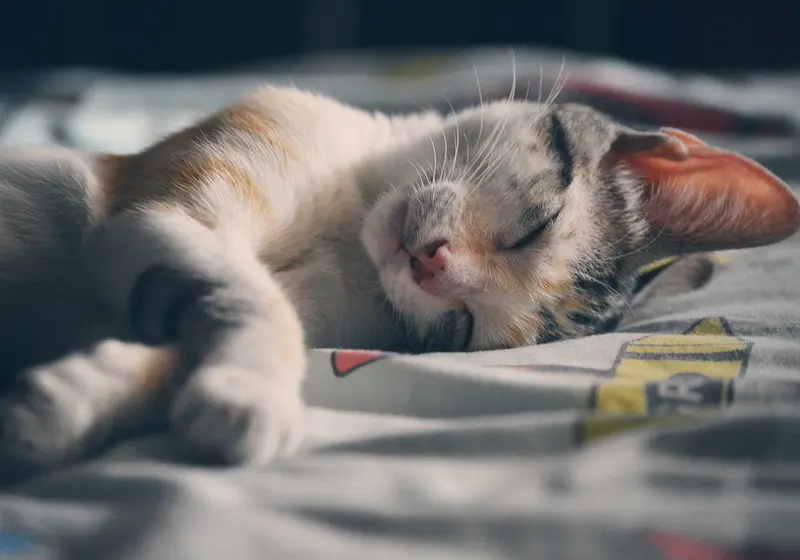








.jpg)

